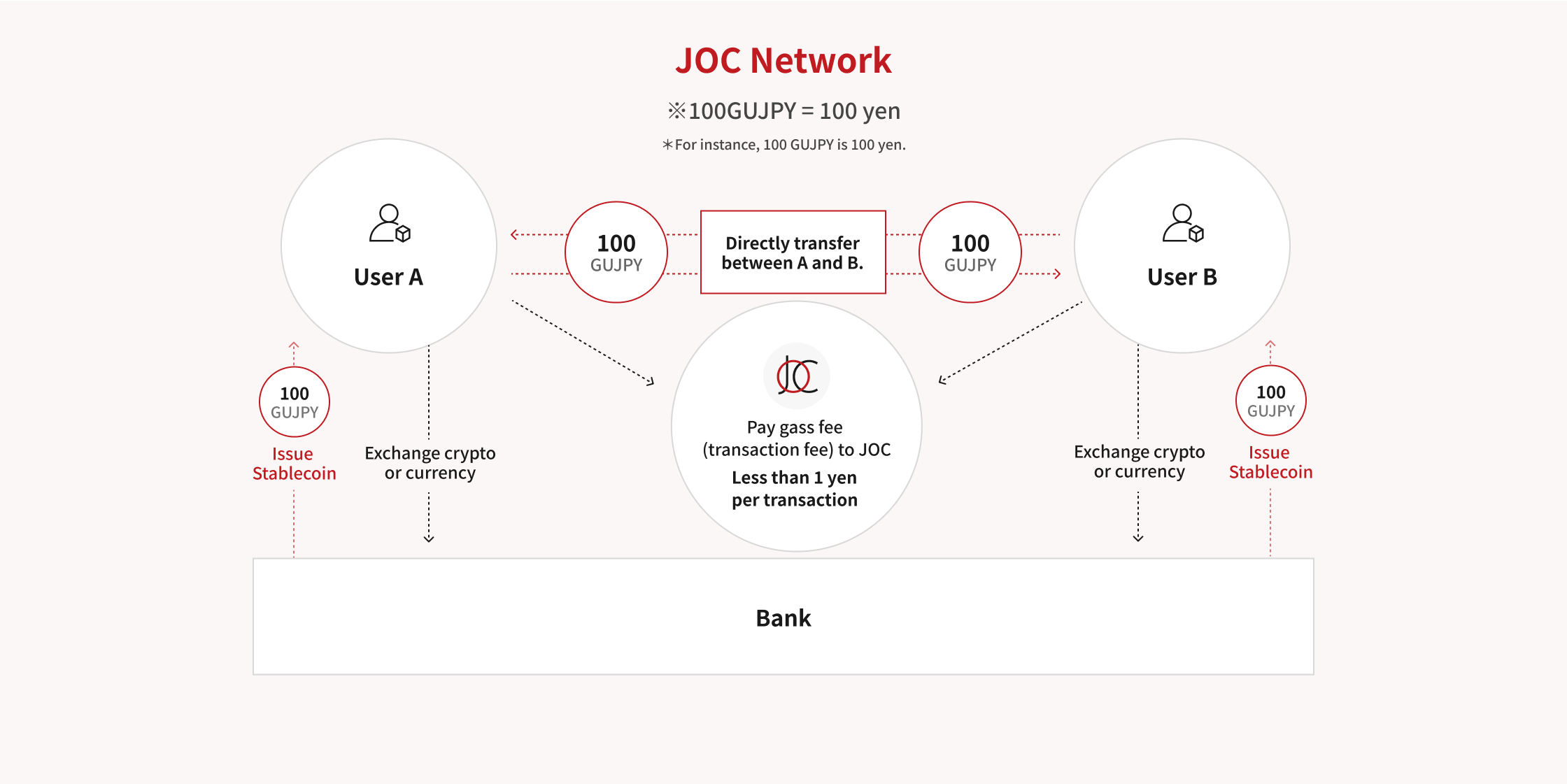Project Expansion
JOC is operated jointly with partners that include major domestic and international companies, technology companies, and global communities, expanding the chain in Japan and worldwide.
The Japan Open Chain (JOC) project is a project aimed at making people's lives more convenient through blockchain technology.
JOC is operated jointly with partners that include major domestic and international companies, technology companies, and global communities, expanding the chain in Japan and worldwide.
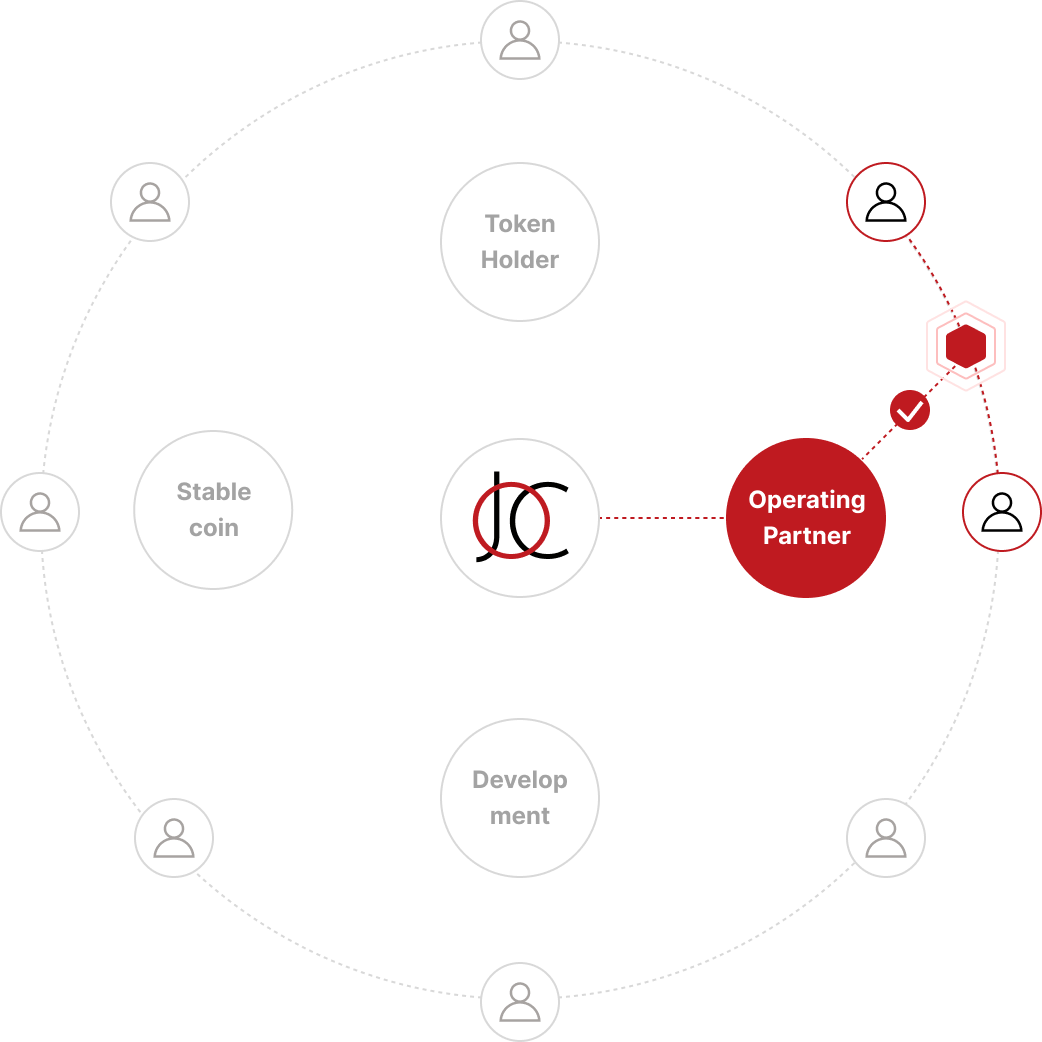
Verifies the validity of transaction data on Japan Open Chain.














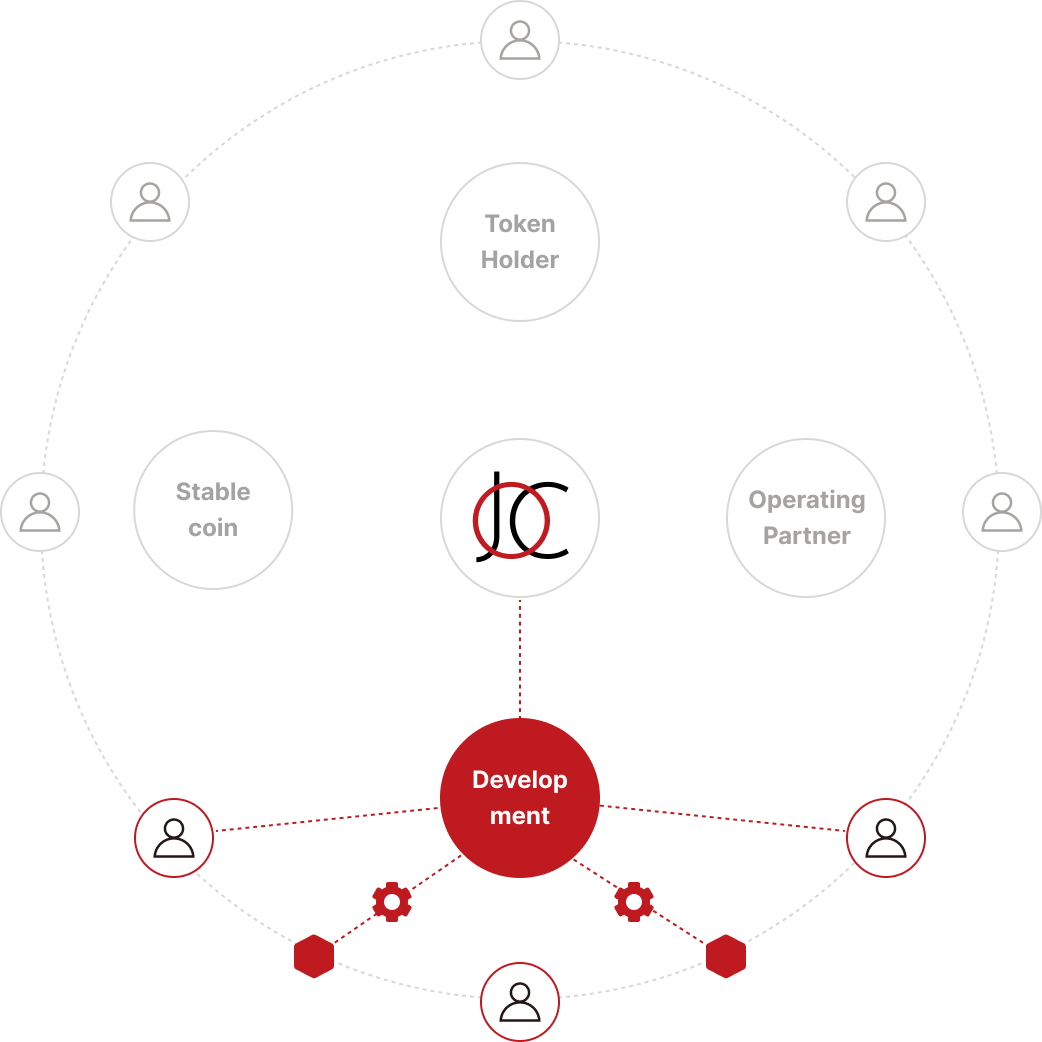
A partner contributing to the development of JOC.















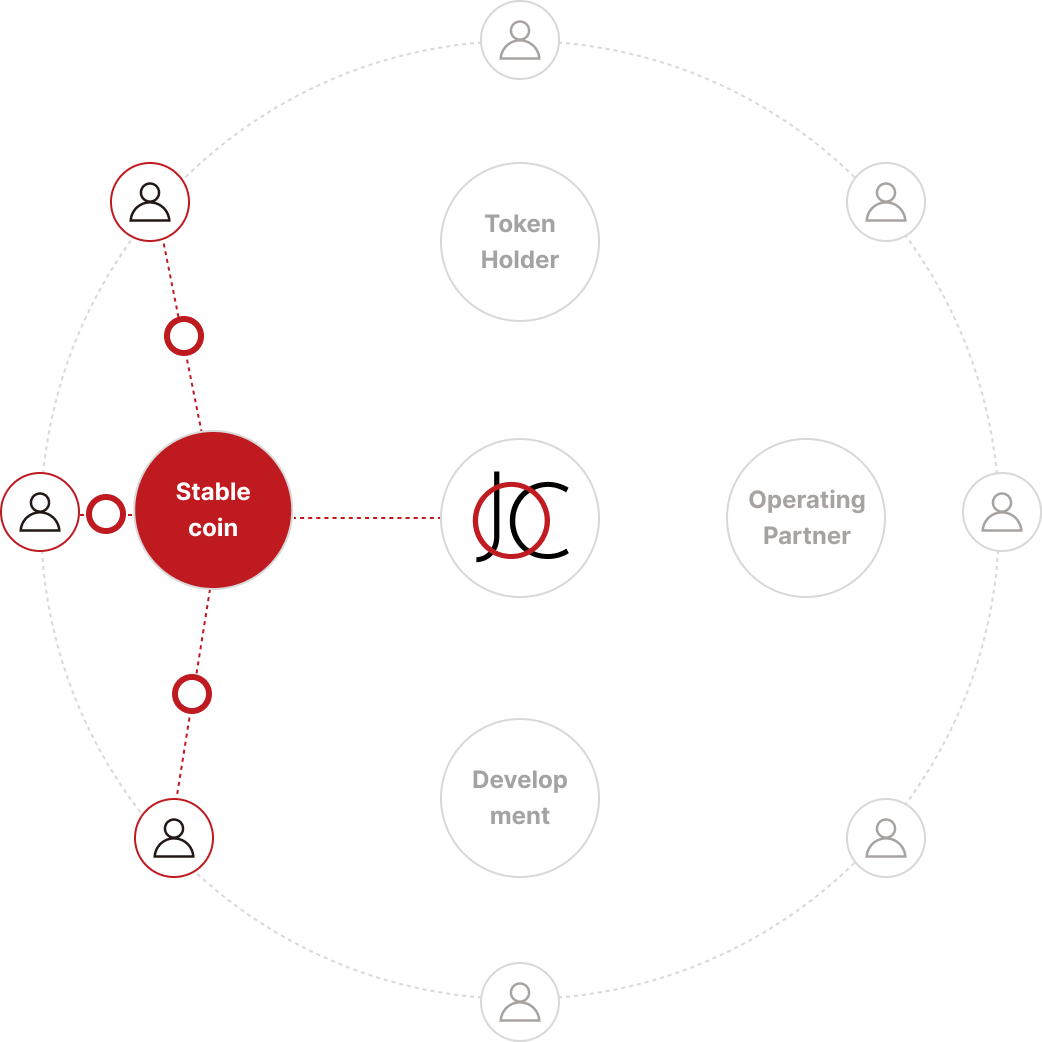
In accordance with the amendments to Japanese law in 2023, a foundation for stablecoins issued by banks has been established. We are collaborating with Japanese banks to aim for the construction of the next-generation financial system.
About Stablecoins




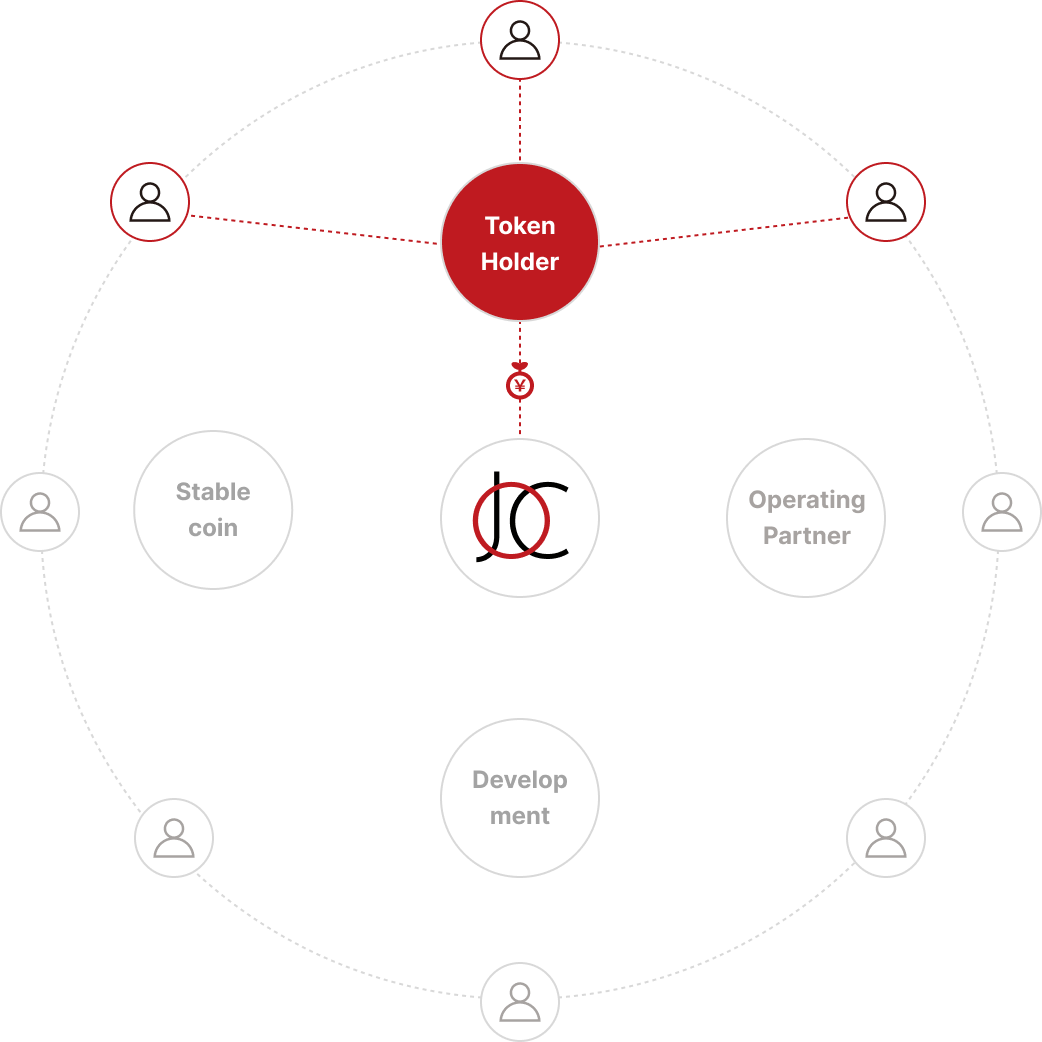
JOC Coins aim to conduct an IEO in 2024 through the domestic cryptocurrency exchange BitTrade. After the IEO, you can support JOC as a token holder. JOC Coins function as a cryptocurrency and are also used for transaction fees (gas fees) on JOC.
About JOC Coins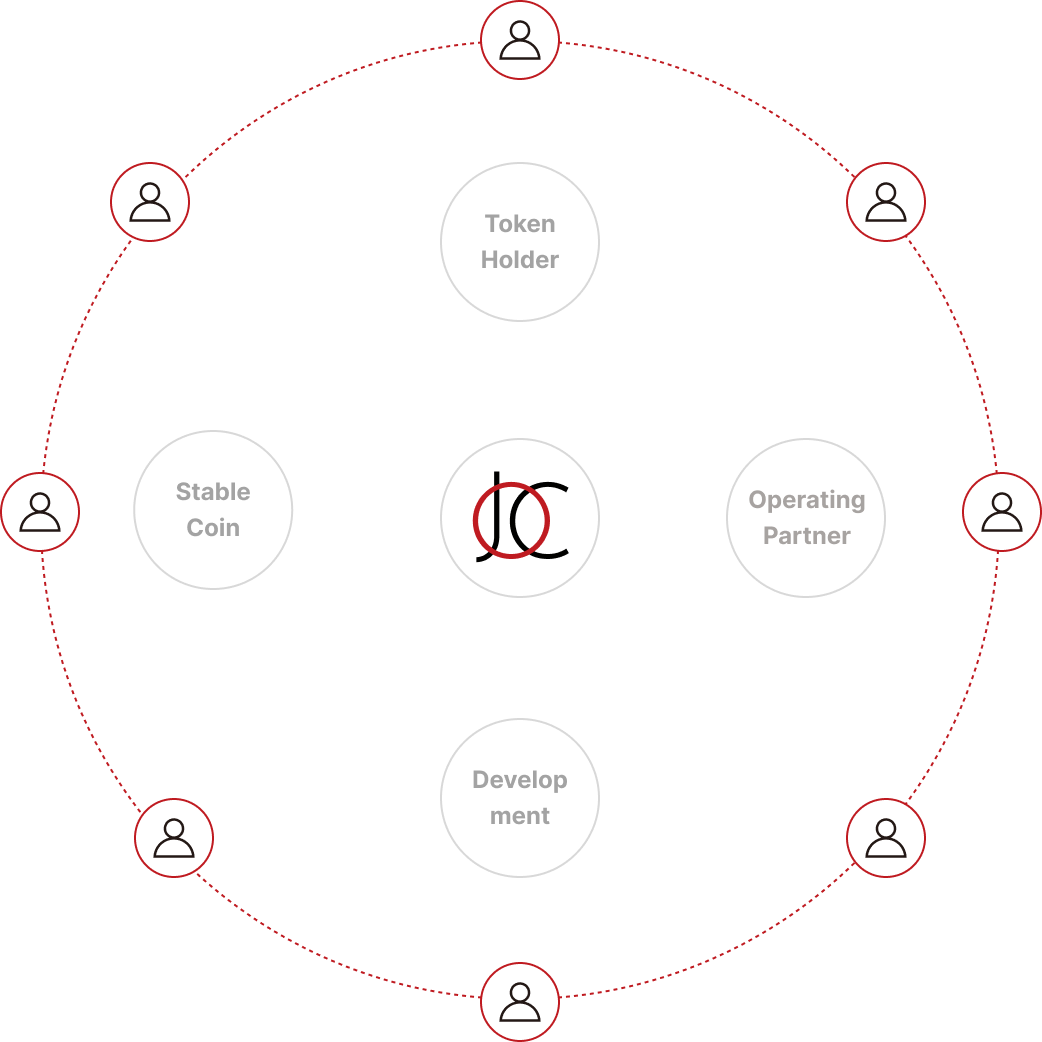
JOC can be used to provide benefits to users across various industries. People around the world can participate in the JOC network.
As part of the JOC project, we are advancing a stablecoin project to achieve high-speed transfers with transaction fees less than 1 yen.
